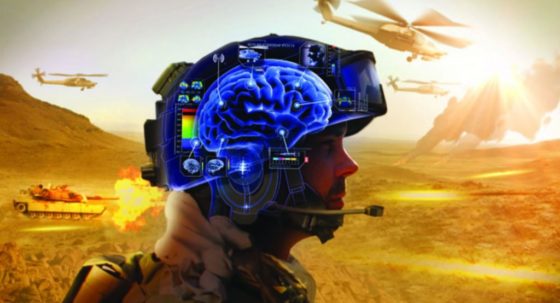
Breaking News
 Zone 00: Permaculture for the Inner Landscape (No Land Required)
Zone 00: Permaculture for the Inner Landscape (No Land Required)
 Sam Bankman-Fried files for new trial over FTX fraud charges
Sam Bankman-Fried files for new trial over FTX fraud charges
 Big Tariff Refunds Are Coming. How Much and How Soon?
Big Tariff Refunds Are Coming. How Much and How Soon?
Top Tech News
 New Spray-on Powder Instantly Seals Life-Threatening Wounds in Battle or During Disasters
New Spray-on Powder Instantly Seals Life-Threatening Wounds in Battle or During Disasters
 AI-enhanced stethoscope excels at listening to our hearts
AI-enhanced stethoscope excels at listening to our hearts
 Flame-treated sunscreen keeps the zinc but cuts the smeary white look
Flame-treated sunscreen keeps the zinc but cuts the smeary white look
 Display hub adds three more screens powered through single USB port
Display hub adds three more screens powered through single USB port
 We Finally Know How Fast The Tesla Semi Will Charge: Very, Very Fast
We Finally Know How Fast The Tesla Semi Will Charge: Very, Very Fast
 Drone-launching underwater drone hitches a ride on ship and sub hulls
Drone-launching underwater drone hitches a ride on ship and sub hulls
 Humanoid Robots Get "Brains" As Dual-Use Fears Mount
Humanoid Robots Get "Brains" As Dual-Use Fears Mount
 SpaceX Authorized to Increase High Speed Internet Download Speeds 5X Through 2026
SpaceX Authorized to Increase High Speed Internet Download Speeds 5X Through 2026
 Space AI is the Key to the Technological Singularity
Space AI is the Key to the Technological Singularity
 Velocitor X-1 eVTOL could be beating the traffic in just a year
Velocitor X-1 eVTOL could be beating the traffic in just a year
The Pentagon is building technology that would allow troops to control machines with their minds

The Defense Advanced Research Projects Agency, also known as DARPA, says the technology, known as Next-Generation Non-Surgical Neurotechnology, or N3, will allow troops to connect to special military control systems using just their brainwaves. The technology will allow for humans to not only control military machines with their minds, but also the inverse – military machines would be able to transmit information to users' brains as well.
The goal is to combine "the speed and processing power of computers with humans' ability to adapt to complex situations," according to DARPA. It will allow people to "control, feel and interact with a remote machine as though it were a part of their own body."
"From the first time a human carved a rock into a blade or formed a spear, humans have been creating tools to help them interact with the world around them," says Al Emondi, the program manager at DARPA's Biological Technologies Office.
"The tools we use have grown more sophisticated over time … but these still require some form of physical control interface – touch, motion or voice. What neural interfaces promise is a richer, more powerful and more natural experience in which our brains effectively become the tool."
Mark of the beast: melding humans with machines
DARPA claims that the technology is completely innocent, as similar iterations of it for disabled veterans are already in use. "Revolutionizing Prosthetics," as it's called, is a program by DARPA that implants electrodes into disabled veterans' brains, allowing them to control prosthetic limbs simply by thinking about it.
But isn't that always how egregious new forms of transhumanism typically start? Positive anecdotes about how invasive technologies are "helping people" almost always functions as the gateway to more government control over humans – in this case, military servicemen who are being told that implantable technologies stand to benefit humanity.
DARPA's rhetoric would have us all believe that combining man with machine is somehow beneficial and even "natural," even though its true implications are more "mark of the beast" than they are revolutionary breakthrough.

 Iran & Epstein Fallout
Iran & Epstein Fallout


